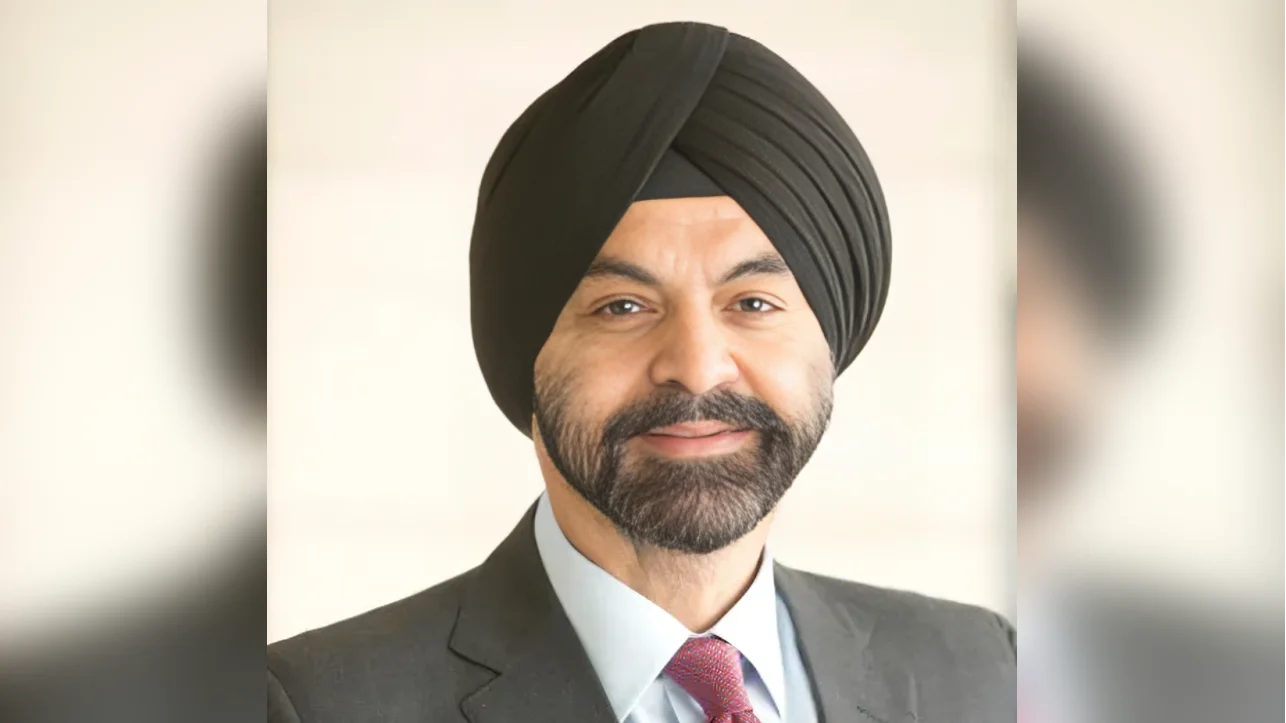The World Bank
Recent News About The World Bank
-
Leaders pledge support for Syria's economic reconstruction efforts
The Finance Minister of Saudi Arabia, the Managing Director of the International Monetary Fund (IMF), and the President of the World Bank Group (WBG) issued a joint statement concerning Syria's economic situation and recovery.
-
Cameroon launches projects to improve youth employment
Young individuals between 18 to 35 years old constitute 57% of Cameroon's labor force, yet many face challenges in securing employment.
-
World Bank Report: Enhancing Finance Access for L&MIC Municipalities
Municipalities in low- and middle-income countries face challenges in securing adequate funding for necessary urban infrastructure projects.
-
Bangladesh secures $850M from World Bank for port development and social protection
Bangladesh and the World Bank have entered into two financing agreements amounting to $850 million.
-
Afghan economy recovery hampered by fiscal and societal challenges, reports World Bank
Afghanistan's economy is showing signs of a gradual recovery, according to the World Bank's latest Afghanistan Development Update.
-
World Bank Group expands investment lab to boost job creation in developing countries
The World Bank Group has launched the next phase of its Private Sector Investment Lab, with a focus on job creation and expanding its membership to include industry leaders experienced in developing economies.
-
Chad adopts technology to improve agriculture and boost farmer productivity
The Climate Resilience and Agricultural Productivity Project (ProPAD) initiative in Chad has introduced a call center to help modernize the agricultural sector through technology.
-
Sub-Saharan Africa's economic growth continues amidst challenges and opportunities
Economic growth in Sub-Saharan Africa is showing signs of resilience despite global economic uncertainties and limited fiscal flexibility.
-
South Asia faces downgraded growth forecasts due to global economic uncertainties
The World Bank has reported a weakened growth outlook for South Asia amid global economic uncertainties, with predictions of growth dropping to 5.8 percent in 2025 and slightly recovering to 6.1 percent in 2026.
-
Maldives Development Update highlights economic outlook and challenges for 2025
The Maldives Development Update (MDU) has released its latest findings, offering a comprehensive analysis of the Maldives' economy based on recent developments and medium-term outlooks.
-
World Bank reports slowdown in Bangladesh's growth with recovery expected in the medium term
DHAKA, April 23, 2025—The World Bank has released its latest Bangladesh Development Update, which paints a picture of economic slowdown for Bangladesh amid growing global economic uncertainties.
-
World Bank urges strategy shift for Latin America amid economic challenges
Amid increasing global economic uncertainty, Latin America and the Caribbean are urged to revise their economic strategies, according to the advance chapter of the World Bank's Latin America and the Caribbean Economic Review (LACER).
-
Europe and Central Asia face slower growth amid global challenges, says World Bank report
Economic growth in the Europe and Central Asia region is anticipated to decline, according to the World Bank's latest Economic Update released today.
-
World Bank report highlights the need for reforms to sustain Pakistan's economic stabilization
Pakistan's economic forecast shows modest growth with real GDP expected to rise by 2.7 percent for the current fiscal year ending June 2025, a slight improvement from last year's 2.5 percent.
-
World Bank predicts moderate economic growth for MENA region in 2025 amid uncertainties
According to a recent report by the World Bank, economic growth in the Middle East and North Africa is projected to accelerate modestly, reaching a growth rate of 2.6 percent in 2025, up from 1.9 percent in 2024.
-
Central Bank of Liberia partners with World Bank's RAMP for asset management
The World Bank has announced that the Central Bank of Liberia (CBL) has joined the Reserve Advisory & Management Partnership (RAMP), a global initiative aimed at enhancing public asset management in lower-income, fragile, or conflict-affected...
-
World Bank emphasizes policies for economic recovery and poverty reduction in Sri Lanka
Sri Lanka's economy has demonstrated robust recovery in 2024, achieving a growth rate of 5 percent, which surpasses the previously projected 4.4 percent, according to the World Bank.
-
Global Sovereign Debt Roundtable discusses restructuring and debt vulnerabilities
The Global Sovereign Debt Roundtable (GSDR) convened in Washington, D.C., focusing on enhancing debt restructuring processes and addressing debt vulnerabilities.
-
Efforts enhance digital connectivity and jobs in the Caribbean
The Caribbean region is witnessing significant advancements in digital infrastructure and employment opportunities through strategic efforts to foster the information and communications technology (ICT) sector.
-
Ethiopian man turns to beekeeping to transform his livelihood through PSNP support
Kifle Kirba, a resident of Bullesa kebele near Aleta Wondo in Ethiopia's Sidama region, has transitioned from struggling as a migrant worker to running his own successful beekeeping business.




















